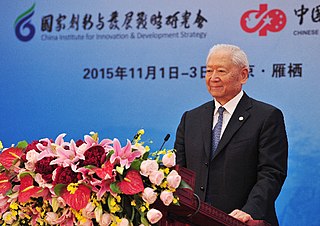A Quote by Amartya Sen
Famines occur under a colonial administration, like the British Raj in India or for that matter in Ireland, or under military dictators in one country after another, like Somalia and Ethiopia, or in one-party states like the Soviet Union and China.
Related Quotes
What does nonalignment mean? It means we don't belong to any military bloc and that we reserve the right to be friends with any country, independently of the influence of any country. All this has remained unchanged after the signing of the Indo-Soviet treaty, and others can say or think what they like - our policy won't change because of the Soviet Union.
The challenge is whether China as a rising country, the United States as the superpower, can develop a cooperative relationship in this period before nationalism becomes so dominant in China as a substitute for communism, and a kind of self-righteous isolationism in this country that substitutes China for the Soviet Union.
My nation faces a fundamental challenge - survival. The regime is more threatened than ever before. My forefathers had it easy. The Great Leader, my grandfather, ruled with the support of the world's other superpower at the time, the Soviet Union, as well as our China. But today, the Soviet Union is history and China has become more integrated with the Western system. And the United States seeks regime change in my country. And yet, we have survived with our ideology and system intact. How? Because we have built a protection for ourselves in the form of nuclear weapons.
Famines are easy to prevent if there is a serious effort to do so, and a democratic government, facing elections and criticisms from opposition parties and independent newspapers, cannot help but make such an effort. Not surprisingly, while India continued to have famines under British rule right up to independence... they disappeared suddenly with the establishment of a multiparty democracy and... a free press and an active political opposition constitute the best early-warning system a country threaten by famines can have.
Why were the Europeans bothered about the Soviet Union at all? It was nothing to do with us. China had nothing to do with us. Why were we not building, without reference to the Soviet Union, a good society in our own countries? But no, we were all - in one way or another - obsessed with the bloody Soviet Union, which was a disaster. What people were supporting was failure. And continually justifying it.
Let's learn from history and take a look at other infamous socialist central-planning experiments like China's Great Leap Forward or the Soviet Union's Five-Year Plan. Like those two disasters, the Green New Deal would cripple our country and sacrifice Americans on the altar of environmental extremism.






































